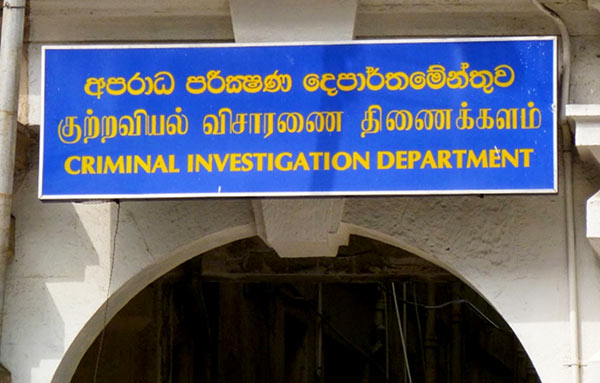In order to prosecute wrongdoers AG directs CID to probe Bond report

The Criminal Investigation Department has been instructed, by Attorney General Jayantha Jayasuriya, to conduct the necessary investigations into issues arising out of the Bond Commission Investigation report, to enable him to prosecute the wrongdoers.
The instructions were given two days ago.
Investigations into the Bond Commission report are being conducted under the supervision of head of the CID, Senior Deputy Inspector General of Police Ravi Seneviratne, Deputy Inspector General of Police Sugath Nagahamulla and Director of the CID, Shani Abeysekera.
A senior official of the CID told Ceylon Today Superintendent of Police Ampavila is handling the investigation.
Meanwhile, in another significant development, the Government is to move an amendment to the Commission of Inquiry Act 1948, so that the Commission to Investigate Allegations of Bribery or Corruption (CIABOC) can also directly prosecute those responsible for Corruption or Bribery without having to start an investigation afresh.
Based on an amendment made in 2008 to the Commission of Inquiry Act 1948, and according to statements and evidence revealed at a Commission, if he is satisfied, the Attorney General was assigned the authority to directly file legal action in connection with the relevant incident. At the same time, on occasions when the AG is not satisfied, the authority was assigned to him to get the Police to conduct further investigations into certain conclusive information with regard to the relevant incident.
A senior official in the Attorney General’s Department said that through the Cabinet Paper, to be presented next week, regarding the Commission of Inquiry Act 1948, the above-mentioned authority, which was assigned to the Attorney General in 2008 is also to be assigned to the CIABOC.
It has been suggested, according to recommendations in the Bonds scam report by the Presidential Commission, to file legal action against Former Governor of the Central Bank Arjuna Mahendran and former Minister of Finance Ravi Karunanayake on charges of corruption and bribery.
The Presidential Commission report on the Bond Transactions says:
“We further recommend that, in view of the determinations referred to above, the Commission to Investigate Allegations of Bribery or Corruption and the other appropriate authorities consider whether the aforesaid acts of Mr. Mahendran amount to acts of “Corruption” as defined in Section 70 of the Bribery Act and, if so, prosecute Mr. Mahendran under the Bribery Act and other applicable Law”.
“We also recommend that, the Hon. Attorney General and other appropriate authorities consider whether some of the evidence given by Hon. Ravi Karunanayake, MP before us is shown to have been incorrect and, if that is the case, whether Mr. Karunanayake should be prosecuted under Section 179 and/or Section 188 of the Penal Code or other relevant provision of the Law, read with Section 9 of the Commissions of Inquiry Act No. 17 of 1948”. At the same time the report prepared by the Presidential Commission of Inquiry to Investigate and Inquire into Serious Acts of Fraud, Corruption and Abuse of Power, State Resources and Privileges (PRECIFAC), on 32 incidents, had also been handed over to the President. By amending the Commission of Inquiry Act 1948, the authority to take legal action against those who have been named as accused in the report will be assigned to CIABOC as well.
As the Commission of Inquiry Act 1948 is under the President, the relevant Cabinet Paper, regarding the proposed amendment, is due to be submitted to the Cabinet by the President himself, the senior official of the AG’s Department said.
Under the Bribery or Corruption Act of 2004, three powers have been assigned to CIABOC. They are investigation, determining decisions to file legal action and directing as well as handling the complaints in the cases. Under this, CIABOC has the authority to implement the law against Ministers or Parliamentarians and State Officials who have engaged in giving bribes or receiving them as well as engaging in corruption and acquiring property illegally.
(Source: Ceylon Today – By Niranjala Ariyawansha)
Latest Headlines in Sri Lanka
- Sri Lanka, Saudi Arabia move to boost industrial cooperation January 30, 2026
- Johnston Fernando, two sons and others further remanded until February 13, 2026 January 30, 2026
- Sri Lanka raises daily wage of plantation workers to Rs. 1,750 January 30, 2026
- Sri Lanka expands Internal Affairs Units to 250 more state institutions January 30, 2026
- Three arrested over Rs. 17 Million Lanka Sathosa garlic scam January 30, 2026



The CID wouldn’t have a clue of what’s in the Bond Report.
What a waste of time or, on the other hand, is the AG passing the buck?
It is time to bring foreign prosecutors in to handle these high profile, complex cases!
And also, Foreign Judges because some of own travel to Pa*** Road at night.